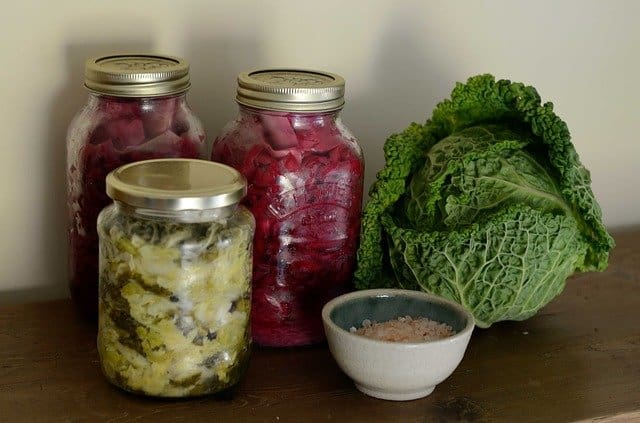Urinary tract infections (UTIs) are very common, affect millions of people every year especially prevalent in women. UTIs are caused by bacterial infection (but fungi and viruses can also cause infection), that affects any part of the urinary tract, including the kidneys, ureters, bladder or urethra. Antibiotics can treat a UTI, but there are also many natural and home remedies available that can help to treat UTI and reduce the risk of recurrence.
Urinary tract infections are caused when bacteria enter your body through the urethra and then spread and multiply in the bladder. Common symptoms of UTI include:
- A burning feeling when you urinate.
- Frequent urination
- Cloudy or dark urine
- Urine with a strong odor
- Blood in the urine
- Pelvic pain in women, especially in the center
- rectal pain in men
(Also Read: 11 Foods that boost our Immune system naturally)
How to get rid of UTI naturally
Bacteria, and Escherichia coli (E. coli), are the most common cause of UTIs. When bacteria enter the urinary tract system, it can cause infection. There are several natural ways to protect against infections and reduce the risk of recurrence.
Here are a few UTI remedies you can try at home to relieve symptoms and speed your recovery:
1. Drink plenty of water
Make sure you are drinking plenty of water to help flush out the bacteria. Experts recommend drinking six to eight 8-ounce glasses of water in a day can decrease the risk of UTI. Limit the intake of caffeinated drinks, including coffee, tea, and soda, Fluids like alcohol, citrus juices, and drinks that have caffeine are reported to irritate the bladder. So keep it simple and have plenty of water.
2. Cranberry

Cranberry is one of the most popular and widely used herbal remedies used in the prevention and treatment of urinary tract infections and cystitis. Cranberries contain proanthocyanidins (PACs), a chemical that prevents bacteria from sticking to the walls of the urinary tract. Cranberries also contain quinic acid, which acts as antibacterial agents to help eliminate bacteria from the bladder. Unsweetened cranberry juice and cranberry tablets are effective for women who frequently get bladder infections. Cranberry should be avoided in patients with renal failure, on blood thinners like warfarin and in those who tend to develop uric acid or calcium oxalate stones (due to the high oxalate content of cranberry).
3. Use Probiotics

Probiotics are live microorganisms that offer health benefits when you ingest them through food or supplements. They are supplements of good bacteria that promote a healthy balance of bacteria in your gut and support a healthy immune system. Some studies also show that the probiotic lactobacillus has proven especially effective at UTI prevention for women. Probiotics are available in supplement form (usually in the form of a capsule or a powder that mixes into water ) or can be found in fermented foods, such as kefir, kimchi, kombucha, Sauerkraut, natto, and probiotic yogurt.
(Also Read: Health Benefits of Probiotics)
4. Vitamin C

Vitamin C intake boosts overall immunity and protects against urinary tract infections. Some evidence shows that increasing vitamin C intake may decrease the risk of UTIs by making the urine more acidic thereby killing off the bacteria that cause infection. According To The National Institutes of Health, women should get at least 75 mg, while men need around 90 mg of vitamin C per day. Fruits and vegetables are especially high in vitamin C such as red and green peppers, oranges, grapefruit, kiwifruit, broccoli and cantaloupe.
5. Bearberry
Bearberry is an herbal plant used in diseases of the bladder and kidneys. It prevents the growth of bacteria in the urinary tract. Drinking Bearberry tea is found effective to treat inflammation and infection in the urinary tract. A dose of 5 grams in hot water can be drunk up to four times daily. Always contact your doctor or health care provider before you start any new treatment.
6. Ginger
The antimicrobial properties of ginger block the growth of bacteria in the urinary tract. Chewing raw fresh ginger, drinking ginger juice or drinking ginger tea can be effective in treating urinary tract infections.
7. Garlic
Garlic has been widely used in both culinary and traditional medicine for centuries. It has been shown to have antimicrobial properties and may be able to block the growth of bacteria to prevent UTIs. Consume garlic as crushed, added to your food or as a tea by steeping crushed cloves in warm water for 5-10 minutes.
8. Corn Silk

Corn Silk has been used as an herbal remedy for centuries in traditional Chinese and Native American medicine for a variety of illnesses including prostate problems, malaria, urinary tract infections (UTIs), and heart disease. Corn silk can be taken as a tea to soothe and treat the symptoms of UTIs. It also helps to relieve the symptoms of burning and pain associated with a urinary tract infection. Talk to your medical care provider before taking any supplement.
9. Practice good healthy habits
- Urinate often: Frequent urination helps eliminate the infection by removing bacteria from the bladder.
- Wear cotton underwear, loose pants, or skirts to promote air circulation and prevent the growth of bacteria.
- Toilet hygiene also plays an important role in preventing infections. Wiping from front to back after urinating or a bowel movement prevents bacteria from entering the urethra and traveling up the urinary tract.
- urinating before and immediately after sex can help prevent UTIs. Also, washing the genitals, before and after engaging in sexual acts or intercourse.
Urinary tract infections are a common problem and with the help of home remedies may ease the symptoms of a UTI. Staying hydrated, practicing good healthy habits, and supplementing your diet with some UTI-fighting foods are good ways to lower your risk of getting infections. Always talk to a doctor before trying any new remedy.
Related Organic Herbal Products You May Be Interested In,
Disclaimer: Content on this site is for reference purposes and is not intended to substitute for advice given by a physician, pharmacist, or other licensed health-care professional. You should not use this information as self-diagnosis or for treating a health problem or disease. Contact your health-care provider immediately if you suspect that you have a medical problem. We by no means will be held responsible for any bad effects that can come out of using these medicines.
For the latest articles and health tips, like us on Facebook or follow us on Twitter and subscribe on YouTube.

